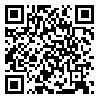Volume 12, Issue 3 (6-2024)
J Diabetes Nurs 2024, 12(3): 2480-2496 |
Back to browse issues page
Research code: 7032
Ethics code: IR.SKUMS.REC.1403.005
Download citation:
BibTeX | RIS | EndNote | Medlars | ProCite | Reference Manager | RefWorks
Send citation to:



BibTeX | RIS | EndNote | Medlars | ProCite | Reference Manager | RefWorks
Send citation to:
Lajmiri S, Heidari H, Raeisi Shahraki H, Sahraei M. Investigating the Effect of a Care Program Based on Bandura's Self-Efficacy Theory and Pictograms on Self-Efficacy and Blood Sugar Management in Adolescents Aged 11 to 22 Years with Type I Diabetes. J Diabetes Nurs 2024; 12 (3) :2480-2496
URL: http://jdn.zbmu.ac.ir/article-1-647-en.html
URL: http://jdn.zbmu.ac.ir/article-1-647-en.html
Shahrekord University of Medical Sciences , haydehheidari@gmail.com
Abstract: (1699 Views)
Introduction: Adolescents with type 1 diabetes face numerous physical and mental challenges. Effective training programs can enhance self-care behaviors in this age group. Bandura's self-efficacy theory has been widely used as a theoretical framework for developing educational interventions. This study investigated the impact of a theory-based care program, incorporating pictograms and lectures, on the self-efficacy and blood sugar management of adolescents with type I diabetes.
Materials and Methods: This semi-experimental study was conducted in Shahrekord with a control and intervention group. Simple random sampling was used to select 68 adolescents with type 1 diabetes. The intervention group participated in a three-session training program based on Bandura's self-efficacy theory, which included lectures and the use of pictograms. Data were collected using standardized diabetes self-efficacy questionnaires and HbA1c tests. Statistical analysis was performed using SPSS software version 26, employing Wilcoxon, paired t-tests, independent t-tests, chi-square, and Fisher's exact tests.
Results: Prior to the intervention, there were no statistically significant differences in self-efficacy scores or HbA1c levels between the control and intervention groups. After the intervention, the self-efficacy scores in the intervention group significantly increased compared to the control group (p < 0.001). Similarly, post-intervention HbA1c levels decreased significantly in the intervention group compared to the control group (p < 0.001).
Conclusion: A supportive care program based on Bandura's self-efficacy theory, using pictograms and lectures, effectively improved self-efficacy and blood sugar management in adolescents with type I diabetes. Incorporating such interventions into educational programs for diabetic patients is recommended to enhance self-efficacy and improve disease management outcomes.
Materials and Methods: This semi-experimental study was conducted in Shahrekord with a control and intervention group. Simple random sampling was used to select 68 adolescents with type 1 diabetes. The intervention group participated in a three-session training program based on Bandura's self-efficacy theory, which included lectures and the use of pictograms. Data were collected using standardized diabetes self-efficacy questionnaires and HbA1c tests. Statistical analysis was performed using SPSS software version 26, employing Wilcoxon, paired t-tests, independent t-tests, chi-square, and Fisher's exact tests.
Results: Prior to the intervention, there were no statistically significant differences in self-efficacy scores or HbA1c levels between the control and intervention groups. After the intervention, the self-efficacy scores in the intervention group significantly increased compared to the control group (p < 0.001). Similarly, post-intervention HbA1c levels decreased significantly in the intervention group compared to the control group (p < 0.001).
Conclusion: A supportive care program based on Bandura's self-efficacy theory, using pictograms and lectures, effectively improved self-efficacy and blood sugar management in adolescents with type I diabetes. Incorporating such interventions into educational programs for diabetic patients is recommended to enhance self-efficacy and improve disease management outcomes.
Keywords: Pictograms, Public Speaking, Bandura's Self-Efficacy Theory, Type I Diabetes, Self-Efficacy
Type of Study: Research |
Subject:
Nursing care plan for diabetes Type I
Received: 2024/10/10 | Accepted: 2024/11/4 | Published: 2024/12/14
Received: 2024/10/10 | Accepted: 2024/11/4 | Published: 2024/12/14
Send email to the article author
| Rights and permissions | |
 |
This work is licensed under a Creative Commons Attribution-NonCommercial 4.0 International License. |



